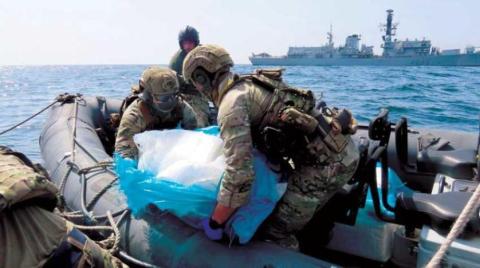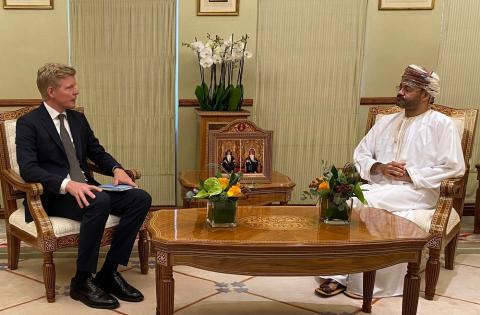
Yemen’s Houthi group agreed on Friday to unilaterally redeploy forces out of three key ports between May 11 and May 14, a UN statement said, a move needed to pave the way for political negotiations to end Yemen’s four-year war.
The statement from the Redeployment Coordination Committee (RCC) said the Houthis would make an “initial unilateral redeployment” from the ports of Saleef, which is used for grain, and Ras Isa, used for oil, as well as the major port of Hodeidah
The committee, led by Danish general Michael Lollesgaard, head of the UN observer team in Hodeidah, drew up the redeployment plans under a pact agreed last December in Sweden, the first major breakthrough in peace efforts to end a war that has killed tens of thousands and pushed Yemen to the brink of famine.
The UN mission will monitor the redeployment, a first step toward concluding the peace agreement, the statement said, adding that it must be followed by “the committed, transparent and sustained actions of the parties to fully deliver on their obligations.”
The redeployment should allow the United Nations to take “a leading role in supporting the Red Sea Ports Corporation in managing the ports” and to enhance UN checks on cargoes.
The Saudi-backed Yemeni government did not state whether their side would make a reciprocal move.
They are also expected to leave positions around Hodeidah city’s outskirts in the initial redeployment, before a second phase in which both sides pull back further.
Yemen information minister Moammar Al-Eryani criticized the Houthi offer to redeploy in a tweet, calling it “misleading” and unacceptable if it did not allow for “joint monitoring and verification” as stipulated by the December pact.
The Sunni Muslim coalition led by Saudi Arabia and the United Arab Emirates say the Houthis use the port to smuggle weapons. The Iran-aligned Houthis say the government would try to choke them off if it gained control.
Western states, some of which supply arms and intelligence to the coalition, are pressing for an end to the conflict, seen in the region as a proxy war between Saudi Arabia and Iran.
Last month UN special envoy Martin Griffiths told Reuters the Saudi-backed government and the Houthi group had formally agreed a first phase of troop redeployments, while discussions were still underway for the second phase.
The spokesman for the Yemeni government’s delegation to the RCC, Sadiq Dweid, wrote in a tweet that his side would hold the United Nations responsible for implementing the December pact “as agreed in terms of verification, monitoring, and the removal of mines and obstacles“
Humanitarian officials have long pleaded with Yemen’s warring sides to spare Hodeidah port, a lifeline for the crippled economy, dependent on the World Food Programme’s biggest aid operation to feed more than 10 million people.












